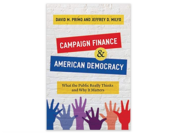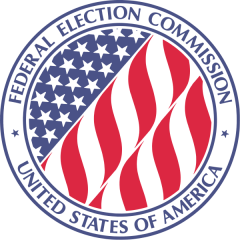This morning a Texas Appeals Court acquitted former Congressman Tom DeLay of charges of “judgments convicting him of the offenses of money laundering of funds of $100,000 or more and conspiracy to commit money laundering of funds of $100,000 or more.”
The Court concluded that “The fundamental problem with the State’s case was its failure to prove proceeds of criminal activity.”
The Center for Competitive Politics and the Wyoming Liberty Group in 2011 filed an amicus brief to the Appeals Court, written by attorney Benjamin Barr, which can be read here.
We congratulate the Court for bringing this politically motivated criminal prosecution to an end and upholding the rule of law.
Vague election laws combined with criminal penalties are a recipe for abusive political prosecutions. They are a threat both to the First Amendment and to honest government.
CCP’s Legal Director Allen Dickerson has this reaction to the ruling:
The First Amendment protects Americans from being imprisoned by their government for political activity. Here, overzealous prosecutors tried to put Tom DeLay in jail because he solicited entirely legal campaign contributions. The state of Texas called this money laundering, but the Court of Appeals saw through their rhetoric and the lamentable complexity of campaign finance regulation, and ordered an acquittal. In doing so, it restored some clarity to the law and some restraint on political prosecutions.
It appears our amicus brief may have had an impact on the Court’s thinking. Here is an excerpt from pages 3-4 from our brief:
Two recent cases, EMILY’s List v. Federal Election Comm’n and Carey v. Federal Election Comm’n, have ruled that separate, segregated accounts for hard- and soft-money work to protect against corruption or its appearance without infringing upon First Amendment rights. 581 F.3d 1 (D.C. Cir. 2009); 791 F.Supp.2d 121 (D.D.C. 2011).
From the Court ruling (pp. 15-16):
But in the context of the campaign finance regulations, maintaining separate, segregated bank accounts for soft and hard money is recognized and accepted as legitimate. See, e.g., 11 C.F.R. 102.5 (authorizing “organizations financing political activity in connection with Federal and non-Federal elections” to maintain separate bank accounts for hard and soft money); EMILY’s List v. Federal Election Comm’n, 581 F.3d 1, 12–13, 17–18 (D.C. Cir. 2009) (discussing distinction and authorization of hard and soft money accounts in context of hybrid nonprofit); Carey v. Federal Election Comm’n, 791 F.Supp. 2d 121, 125, 131–32 (D.D.C. 2011) (discussing distinction and authorization of “separate” hard and soft money accounts in context of federal political action committee and concluding that “maintaining two separate accounts is a perfectly legitimate and narrowly tailored means to ensure no cross-over between soft and hard money”).
We also note that eight years ago, within days of CCP’s founding, CCP Chairman and founder Brad Smith published this op-ed on the case, largely anticipating today’s ruling, in the Wall Street Journal.
A copy of the Court’s ruling can be read here.
UPDATE: Wyoming Liberty Group has an excellent post on the case and the ruling here.














